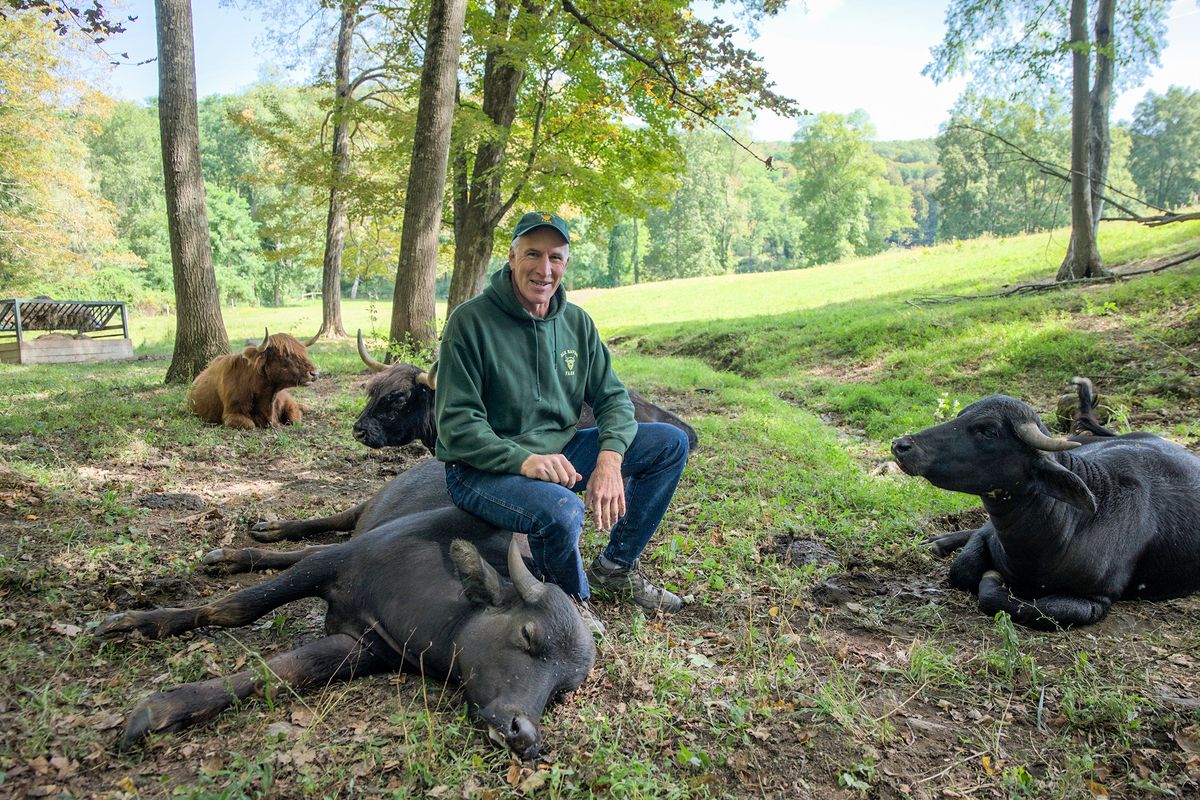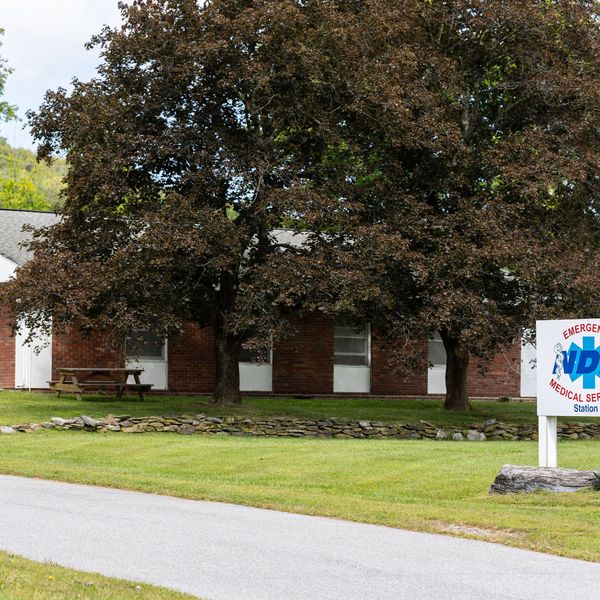Latest News
Route 199 reopened to thru traffic
Sep 19, 2025
Construction crews finished installing safety railings on the culvert and reopened Route 199 on Friday, Sept. 19.
Photo by Nathan Miller
PINE PLAINS — New York State road crews finished installing a new culvert on Route 199 between Chase Road and Schultz Hill Road on Friday, Sept. 19.
Work began in June and the Department of Transportation projected construction to be complete by Aug. 31.
DOT Public Information Officer Heather Pillsworth said in a written statement that equipment issues caused the delay.
"The roadway reopened today (Sept. 19) and the New York State Department of Transportation appreciates the public’s patience as we worked to complete this important project as quickly as possible," the statement read.
Keep ReadingShow less
Jim Archer of Elk Ravine Farm takes a seat on Billy the water buffalo on Wednesday, Sept. 10.
Nathan Miller
AMENIA — Jim Archer doesn’t look like a typical “influencer.” He doesn’t have a podcast and he doesn’t take jet-setting trips to Bali for advertising shoots.
But he has amassed a following of more than 100,000 people across his Instagram and TikTok accounts. Archer shows off his unique collection of farm animals and produces educational content about ecology and the environment all from Elk Ravine Farm, his property on Smithfield Valley Road in Amenia.
Archer bought the farm 30 years ago. He was living in Katonah, New York — where he grew up — and finding success as a contractor when he decided he wanted plenty of land in the country.
He bought the 90-acre property and spent 10 years prepping and building before he could move onto the farm. Then the real work could begin.
Archer has a passion for environmentalism and conservation that runs deep. His farm is under conservation easement with the Dutchess Land Conservancy, and the main goal of his operation is to raise livestock to aid in maintaining endangered habitats.
Archer raises Scottish Highlands cattle and Southeast Asian water buffalo because of their affinity for rugged terrain and dense, unappetizing foliage. They serve as all-natural weed-eaters, Archer said, going into habitats and eating plants that more typical livestock would avoid.
“They’re replacing an herbivore that has become extinct through millennia,” Archer said.
This strategy centers natural habitat management strategies rather than herbicides that could leach into water tables, potentially causing more harm to critters than the good that would come from removing invasive plants.
The water buffalo are especially fond of an invasive called phragmites — also known as common reed. These non-native plants form dense clods that choke out native species, according to the New York Invasive Species Information website, eventually killing all diversity in a wetland.
“Scottish highlanders don’t want to go where the footing is bad,” Archer said. “So I asked if we could proceed with Southeast Asian water buffalo and we’ve been working with them for about two years now.”
The operation is under expansion with 13 water buffalo and between 35 and 40 highlands cattle.
Archer’s environmental work is expensive, though, and he refuses to accept donations or even volunteer labor to help him with his operation. Instead, he sells educational tours of his Amenia farm to fund the conservation efforts. “I have to earn what I get,” Archer said.
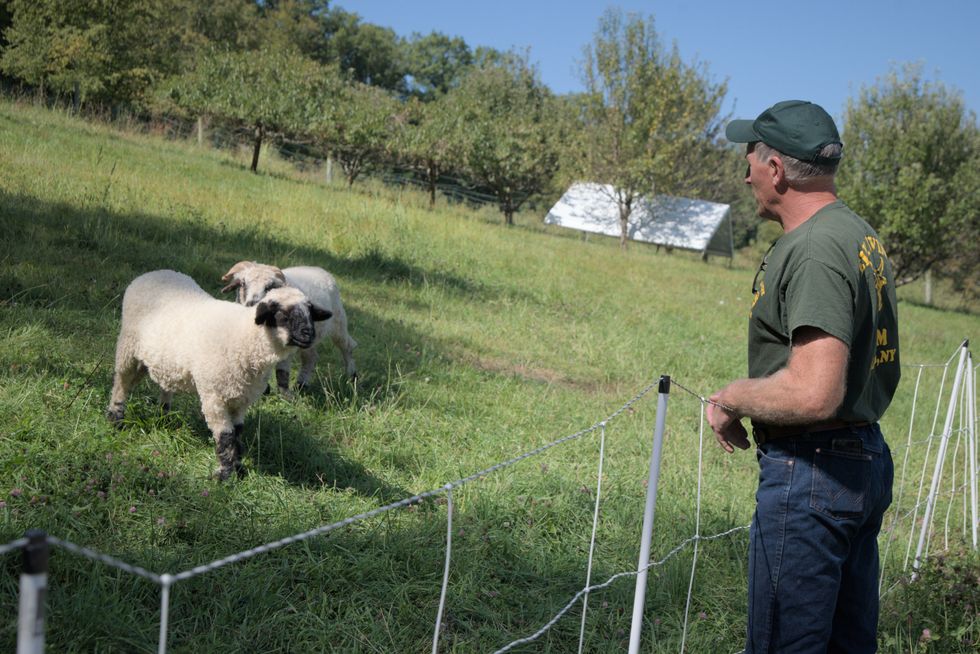
Archer has amassed a menagerie of animals at his 90-acre farm — all raised from adolescence by him and his fiancee — including pigs, sheep, highlands cattle, water buffalo, emus, goats, pheasants, horses, pigeons, ducks and peafowl.
Tourists start by meeting the highlands cattle, the animal that generally draws a group to the farm, Archer said. “Everybody wants to pet a fluffy cow.”
Archer’s tours put visitors in direct contact with nearly every animal on his farm, except for the horses. Those are just for pulling Archer’s restored stage coaches, including a re-creation horse-drawn ambulance — a hobby for him and his fiancée.
The experience can be overwhelming for some. “I get a lot of people that cry,” Archer said, because many of his visitors are urban or suburbanites with limited experience with animals, and the interactions can be moving.
“Somebody was suffering a loss of their partner,” Archer said. “They came here to see the animals to help through their grieving process. Billy, the water buffalo, was laying down so she sat down and he put his head in her lap. The whole time we were there — 30, 45 minutes — she was just there bonding with him.”
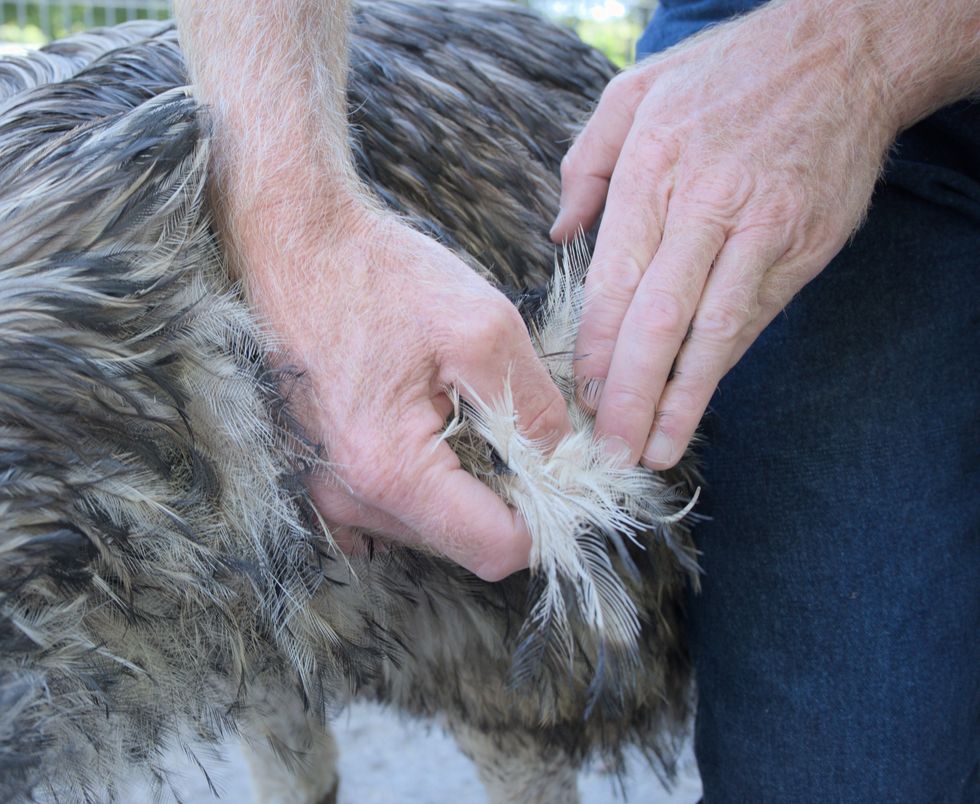
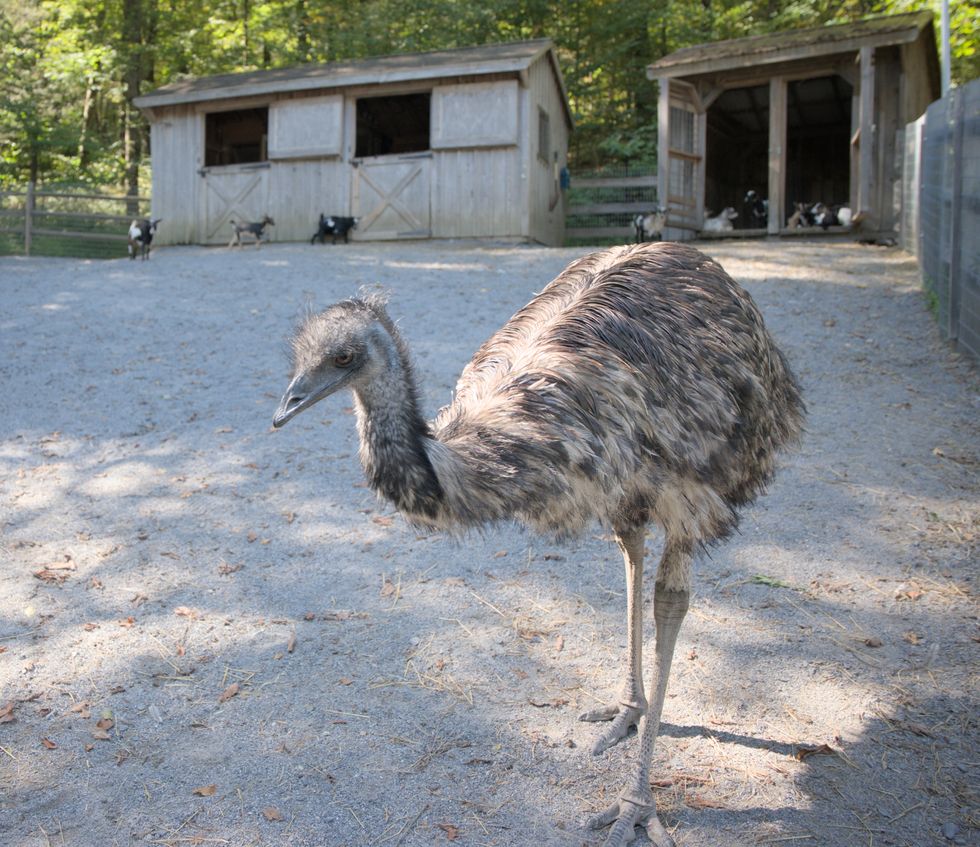
The most divisive animals on the property are the emus. Archer has five of them that live in an enclosure with some goats. The emus are curious and friendly, but they have a funny way of showing it. The birds have to explore things using beaks, leading to a lot of nibbling and pecking as visitors stand in the pen with them. Some people, understandably, find that a little annoying, Archer said.
Interested visitors can book tours through Archer’s website, www.elkravinefarm.com, or by texting 914-262-4737. A two-hour tour of the farm for a group of four people costs $250. An appointment is required to visit the farm.
Keep ReadingShow less
Sharon Dennis Rosen
Sep 17, 2025
SHARON — Sharon Dennis Rosen, 83, died on Aug. 8, 2025, in New York City.
Born and raised in Sharon, Connecticut, she grew up on her parents’ farm and attended Sharon Center School and Housatonic Valley Regional High School. She went on to study at Skidmore College before moving to New York City, where she married Dr. Harvey Rosen and together they raised two children.
Sharon’s lifelong love of learning and the arts shaped both her work and her passions. For decades, she served as a tour guide at the American Museum of Natural History and the Asia Society, sharing her knowledge and enthusiasm with countless visitors. She also delighted in traveling widely, immersing herself in other cultures, and especially treasured time spent visiting her daughter and grandsons in Europe and Africa.
She was also deeply connected to her hometown, where in retirement she spent half her time and had many friends. She served as President of the Sharon East Side Cemetery until the time of her death, where generations of her family are buried and where she will also be laid to rest.
She is survived by her husband, Harvey; her children, Jennifer and Marc; and four beloved grandchildren.
Keep ReadingShow less
loading






